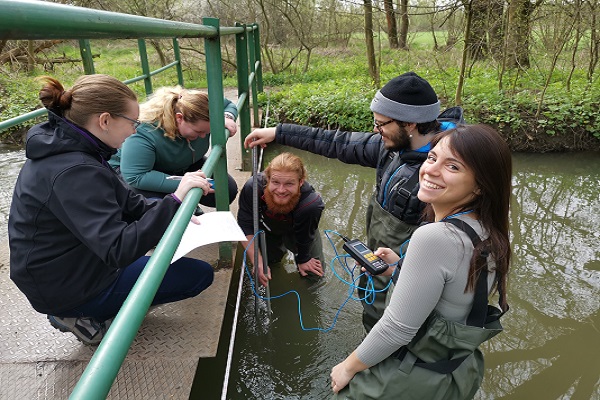1. Environmental management - discussion of different approaches, their economic impacts
2. Waste minimization, cleaner production. Definition, description of evaluation of cleaner production possibilities. Methodology of implementation in the company. Benefits of cleaner production projects for the environment and the company's economy. IPPC - principles, implementation, best available technologies (BAT), reference lists BAT - BREF, Czech legislation.
3. Environmental audits (EA) - definitions, regulations. Types of EA, common features and differences, description of the procedure, participants, team formation, auditors - qualification requirements, internal and external audits - differences, method of using the results
4. Product life cycle assessment (LCA) - definition, methodology, benefits, use, standards ISO 14040, 14044.
5. Environmental labeling. National environmental labeling program, European labeling.
6. Environmental management systems. Implementation of EMS according to ISO 14001 - environmental policy, goals and target values, environmental programs, staff training, EMS audit, management review of the system, participation of consultants, teamwork, project management. EMS certification - conditions, possibilities, reasons, costs. Accreditation of certification bodies.
7. EMAS - differences from ISO 14001, verification, qualification requirements for environmental verifiers. Registration of EMAS verified, responsible authority.
8. Links to other management systems (quality, safety and hygiene, risk assessment), integrated management system.
9. Environmental profile indicators, ISO 14031, eco-efficiency.
10. Environmental reporting, CSR
11. The role of risk assessment in environmental protection, environmental impacts of industrial accidents
12. Environmental management of the territory (city, region), environmental part of Local Agenda 21, indicators of sustainable development - meaning, selection, use
13. Access to environmental information, Aarhus Convention, public participation – EIA/SEA, unified environmental opinion, Czech legislation..
2. Waste minimization, cleaner production. Definition, description of evaluation of cleaner production possibilities. Methodology of implementation in the company. Benefits of cleaner production projects for the environment and the company's economy. IPPC - principles, implementation, best available technologies (BAT), reference lists BAT - BREF, Czech legislation.
3. Environmental audits (EA) - definitions, regulations. Types of EA, common features and differences, description of the procedure, participants, team formation, auditors - qualification requirements, internal and external audits - differences, method of using the results
4. Product life cycle assessment (LCA) - definition, methodology, benefits, use, standards ISO 14040, 14044.
5. Environmental labeling. National environmental labeling program, European labeling.
6. Environmental management systems. Implementation of EMS according to ISO 14001 - environmental policy, goals and target values, environmental programs, staff training, EMS audit, management review of the system, participation of consultants, teamwork, project management. EMS certification - conditions, possibilities, reasons, costs. Accreditation of certification bodies.
7. EMAS - differences from ISO 14001, verification, qualification requirements for environmental verifiers. Registration of EMAS verified, responsible authority.
8. Links to other management systems (quality, safety and hygiene, risk assessment), integrated management system.
9. Environmental profile indicators, ISO 14031, eco-efficiency.
10. Environmental reporting, CSR
11. The role of risk assessment in environmental protection, environmental impacts of industrial accidents
12. Environmental management of the territory (city, region), environmental part of Local Agenda 21, indicators of sustainable development - meaning, selection, use
13. Access to environmental information, Aarhus Convention, public participation – EIA/SEA, unified environmental opinion, Czech legislation..
